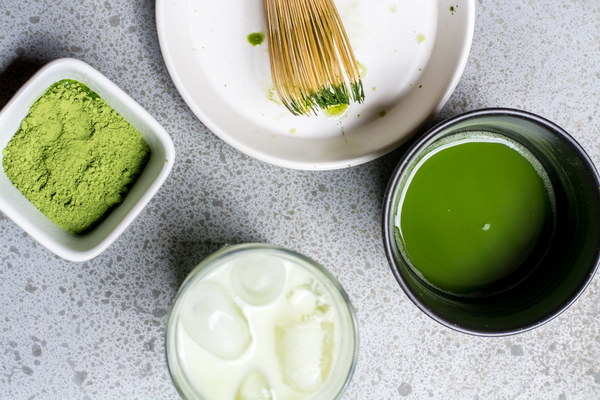Unlock the Secrets of Traditional Chinese Medicine A Journey into Holistic Wellness
Embarking on a journey through the ancient wisdom of Traditional Chinese Medicine (TCM), we delve into the secrets of holistic wellness that have been passed down through generations. TCM, with its rich tapestry of knowledge, offers a unique perspective on health and well-being, emphasizing the importance of balance and harmony within the body, mind, and spirit.
At the heart of TCM is the belief that health is the result of a harmonious relationship between the body and its environment. To achieve this balance, TCM utilizes a variety of practices, including acupuncture, herbal medicine, diet, and exercise, all of which are designed to promote the body's natural ability to heal itself.
One of the fundamental concepts in TCM is the concept of Yin and Yang, the ancient Chinese philosophy that all things are composed of two opposing forces that are interconnected and complementary. In terms of health, this means that for one aspect of the body to be in balance, the other must also be in balance. For example, if one is overly emotional, it may lead to physical imbalances, such as poor sleep or digestion issues.

Acupuncture, a key component of TCM, involves inserting fine needles into specific points on the body to stimulate the body's natural healing processes. This technique is believed to restore the balance of Qi (vital energy) within the body, which is essential for overall health and wellness. Acupuncture has been used for thousands of years to treat a wide range of conditions, from chronic pain to anxiety and stress.
Herbal medicine is another cornerstone of TCM, with a vast array of natural remedies that have been used for centuries to treat various ailments. These herbs are carefully selected based on their properties and are often combined to create customized formulas tailored to the individual's specific needs. TCM herbal remedies are known for their gentle and effective approach to healing, without the harsh side effects often associated with modern pharmaceuticals.
Diet plays a crucial role in TCM, as it is believed that the foods we consume directly affect our health and well-being. TCM nutrition focuses on balancing the body's five elements—wood, fire, earth, metal, and water—and encourages the consumption of foods that align with the individual's specific constitution and current health conditions. For example, someone with a cold may be advised to eat warming foods, such as ginger or garlic, while someone experiencing stress may be encouraged to consume calming foods, such as chamomile tea or sweet potatoes.
Exercise is also an essential part of TCM, as it helps to maintain the body's Qi and promotes physical and mental well-being. TCM offers a variety of exercises, including tai chi, qigong, and yoga, all of which are designed to enhance balance, flexibility, and overall health. These exercises often incorporate breathing techniques and mindful movements that help to calm the mind and reduce stress.
In addition to these practices, TCM places a strong emphasis on self-care and preventive medicine. By focusing on the root cause of illness rather than just the symptoms, TCM aims to prevent disease and promote long-term health. This holistic approach to wellness encourages individuals to take an active role in their own health and well-being, fostering a sense of empowerment and responsibility.
In conclusion, Traditional Chinese Medicine offers a wealth of knowledge and practices that can help us achieve a state of balance and harmony within our bodies, minds, and spirits. By embracing the principles of TCM, we can unlock the secrets of holistic wellness and experience a more vibrant and fulfilling life. So, why not take a step back in time and discover the timeless wisdom of TCM for yourself?









